Current Schemes
FMLM Clinical Fellow Schemes offer emerging clinical leaders with the opportunity to develop skills in leadership, management, strategy, project management and health policy outside of clinical practice.
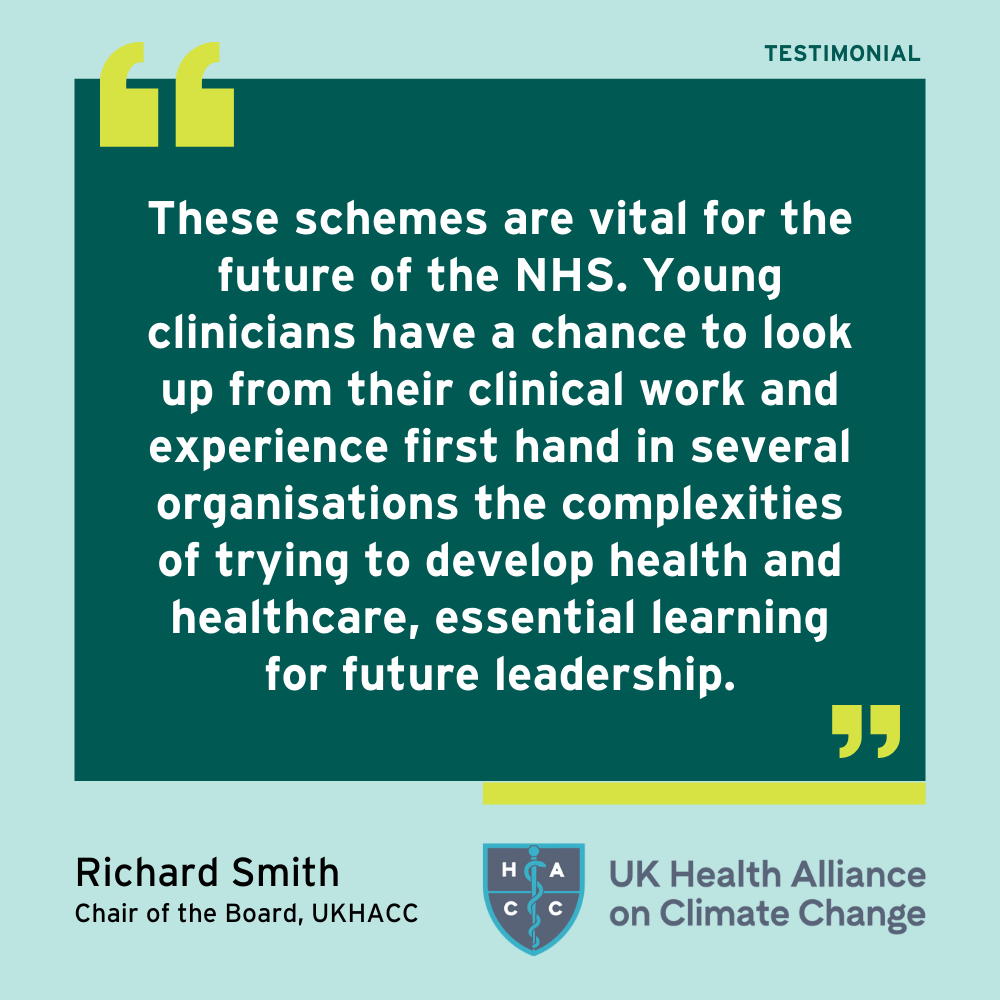
Host organisations have the opportunity to be part of a prestigious portfolio of schemes that develop a growing community of future clinical leaders who advocate and influence clinical, organisational and patient improvements across multiple healthcare systems.
We currently facilitate the following schemes:
Chief Sustainability Officer's Clinical Fellow Scheme
Chief Dental Officer England Clinical Fellow Scheme
National Medical Director's Clinical Fellow Scheme
Chief Pharmaceutical Officer's Clinical Fellow Scheme
Current Clinical Fellow Cohort
- Osman Ali, Current Chief Pharmaceutical Officer’s Clinical Fellow 24/25
-
Image
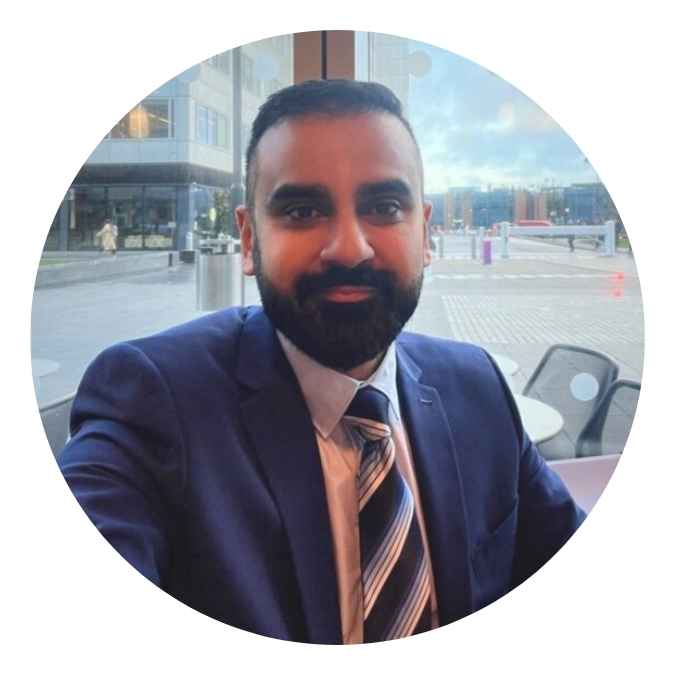
Hello, I am Osman Ali, currently the Chief Pharmaceutical Officer’s Clinical Fellow at the Royal Pharmaceutical Society (RPS). Prior to this fellowship, my substantive role was High-Cost Drugs and Procurement Lead Pharmacist, where I led medicines optimisation for high-cost drugs and delivered impactful cost-saving strategies. My diverse experience spans clinical pharmacy, healthcare leadership, and system-wide service improvement across community pharmacy, primary care, commissioning, and secondary care. I am passionate about advancing pharmacy practice, improving patient care, and driving sustainable healthcare solutions that enhance efficiency and reduce environmental impact. This fellowship is strengthening my ability to lead with compassion, integrity, and accountability while championing equality, diversity, and inclusion. I am dedicated to becoming an innovative and influential leader, committed to shaping the future of pharmacy and delivering meaningful healthcare improvements.
- Simon Lambracos, Current Chief Sustainability Officer's Clinical Fellow 24/25
-
Simon is a radiology trainee at Guy’s & St Thomas’ NHS Foundation Trust. He is currently Chief Sustainability Officer clinical fellow with Greener NHS and the Getting It Right First Time (GIRFT) programme where he is working on the decarbonisation of surgical care pathways as well as creating guidance for a more sustainable imaging service. He is also working closely with the Greener NHS innovations workstream to promote the development of sustainable innovations.
Simon graduated from the University of Cambridge medical school in 2016 and was a member of the Royal College of Surgeons whilst a surgical trainee. He was a committee member of the Global Anaesthetic Surgical and Obstetric Collaborative where he co-organised the sustainability themed annual conference in 2022 and co-developed the innovations hub. His passion now lies in exploring how healthcare innovations can contribute to the decarbonisation of the healthcare system, particularly within diagnostic and interventional radiology services.
Image
- Sonal Patel, Current Chief Pharmaceutical Officer's Fellow 24/25
-
Image

I'm Sonal, the Chief Pharmaceutical officer's Clinical fellow at the General Pharmaceutical Council . I am a clinical pharmacist with over a decade of experience leading gastroenterology and hepatology pharmacy services in secondary care. I have supported the development of treatment pathways and pharmacist-led prescribing clinics for complex conditions such as inflammatory bowel disease and viral and autoimmune hepatitis. I am a committee member of the British Hepatology Pharmacy Group, which provides leadership and support to pharmacists with an interest in hepatology across the UK. My professional interests include developing educational resources, optimising pathways, and promoting workplace inclusivity.
During my fellowship year, I aim to broaden my perspective beyond the remit of secondary care, gain insight into the wider healthcare landscape and the factors that influence national decision-making.
- Jarin Noronha, Current National Medical Director's Clinical Fellow 24/25
-
I am an ST7 breast surgery trainee in the South West with a background in surgical oncology, where I contributed to cancer research. I have undertaken local leadership roles to enhance surgical teaching and enjoy mentoring resident doctors. I hold a PGCert in Health Economics, which has broadened my understanding of healthcare systems. I am eager to develop my medical leadership skills and am motivated by continuous learning, valuing collaboration in tackling complex challenges. Outside of work, I enjoy playing the guitar, reading, and making my little boy laugh. Image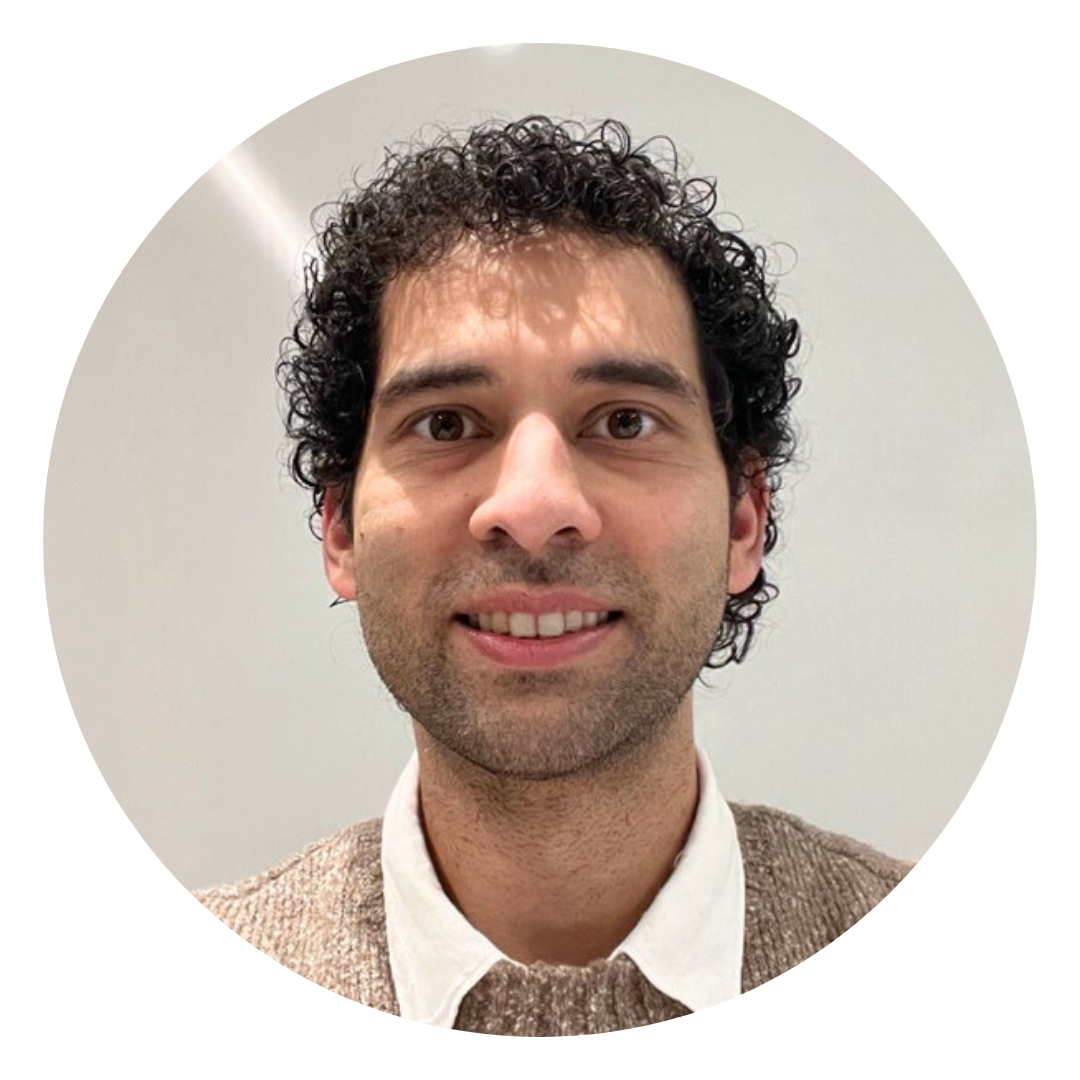
- Sadie Pinkney, Current Chief Pharmaceutical Officer's Clinical Fellow 24/25
-
Image

My name is Sadie, and I am the Chief Pharmaceutical Officer Clinical Fellow for CPPE. I’m an experienced pharmacist with a background in primary, secondary, and tertiary care, committed to providing equitable, high-quality patient care for all. I’ve worked as a medicines safety and clinical governance pharmacist, lead cardiology pharmacist, and lead pharmacist for an integrated primary care network, where I led a pharmacy team across 7 GP practices. As a clinical fellow I am honoured to be working on national initiatives to promote inclusive pharmacy practice. My goal for the fellowship is to be a more effective and compassionate leader, embedding excellence in equality, diversity, and inclusion in all aspects of leadership.
- Suzanne Al-Rawi, Current Chief Pharmaceutical Officer’s Clinical Fellow 24/25
-
I am a cardiac pharmacist with a strong passion for workforce development and inclusive practice. A firm believer in bottom-up leadership to drive organisational change, I am thrilled to be honing these skills under the guidance of expert mentors.
Currently, I work within the Hospital Pharmacy Modernisation team at NHS England, gaining invaluable experience in strategic planning and implementation on a national scale. The fellowship has already been such an incredibly inspiring and rewarding journey, offering deep insights into leadership, strategic policy, and innovation within NHSE. Its flying by far too quickly and I cannot recommend it highly enough—it’s a truly unique opportunity!
Image
- Aliya Turk, Current Chief Pharmaceutical Officer’s Clinical Fellow 24/25
-
Image
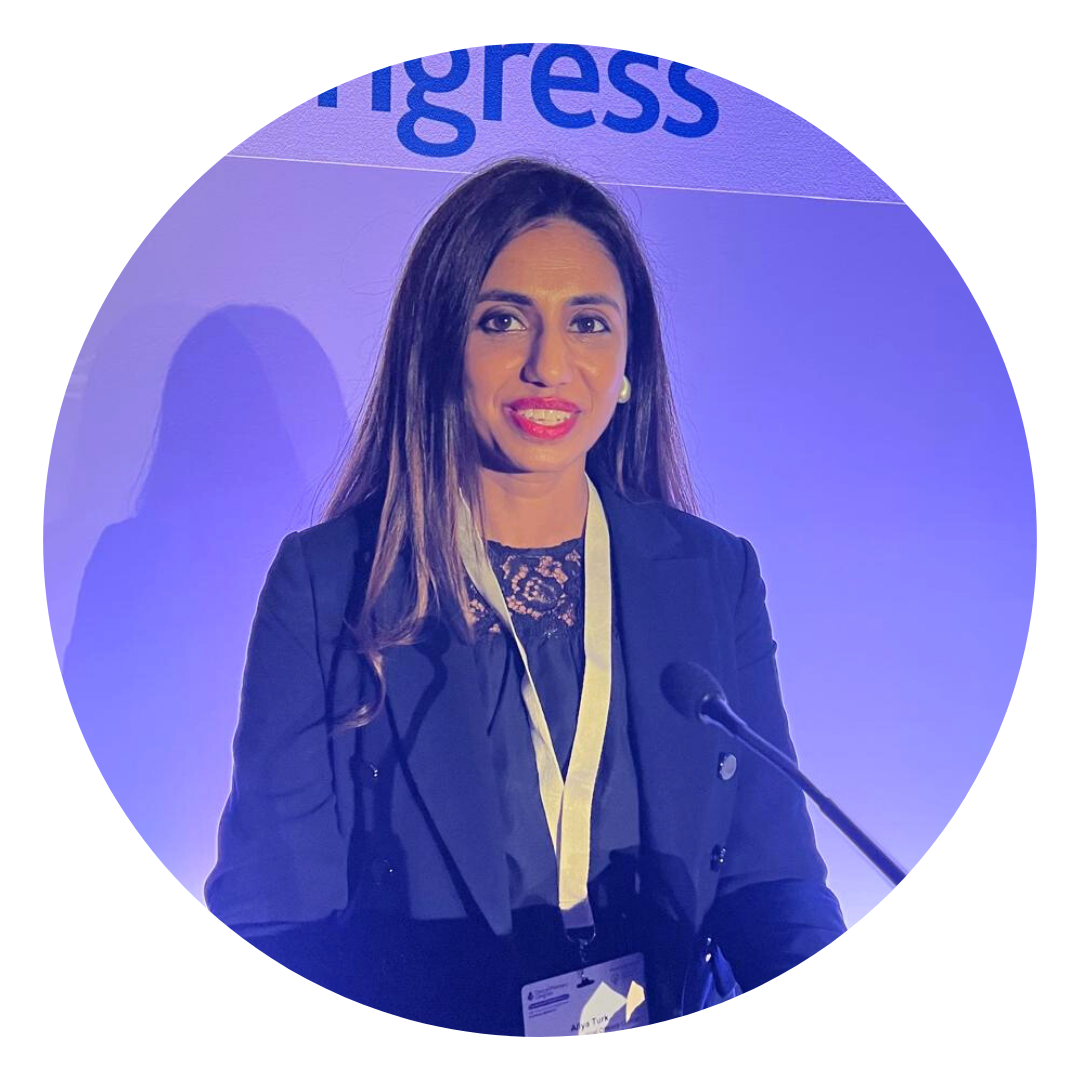
Aliya is the newly appointed Chief Pharmaceutical Officer’s Clinical Fellow at the Faculty of Medical Leadership and Management ( FMLM) hosted by UK Health Security Agency ( UKHSA). With 14 years of diverse NHS experience, she has worked as a clinical pharmacist in military wards, and as a specialist in kidney care, mental health, and formulary management. Aliya has led initiatives in homecare, high-cost drugs, and collaborated with NICE on medicines and prescribing. She has developed policies addressing health inequalities and improving patient care. In her current role, she leverages her expertise in Data Analytics and for national biosurveillance network guided by Professor Tracey Thornley at UKHSA. - Declan Dudley, Current National Medical Director's Clinical Fellow 24/25
-
Declan’s background is in General Practice, and he is spending his fellow year with the national public health team at NHS England.
He firmly believes that the gap between system-wide objectives and the lived experience of patients and healthcare workers must be bridged by clinical leaders who understand the operational delivery of healthcare, ensuring that policies and strategies are not abstract ideals but grounded in the reality of those directly impacted by them. He is looking forward to bringing nearly a decade of frontline clinical experience across multiple settings to this role, keeping patients at the heart of his work.
LinkedIn ProfileImage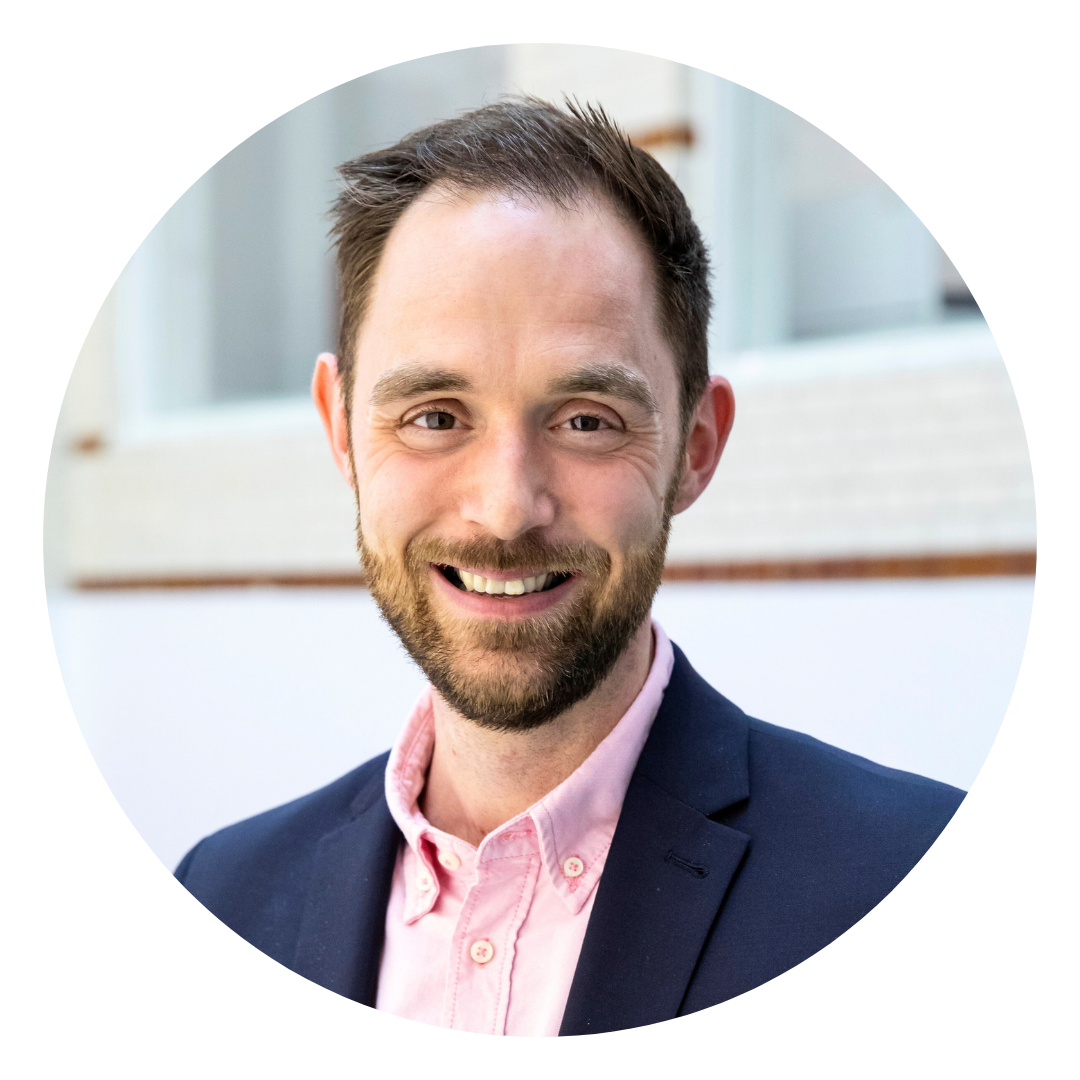
- Madeleine Foster, Current Chief Pharmaceutical Officer’s Clinical Fellow 24/25
-
Image
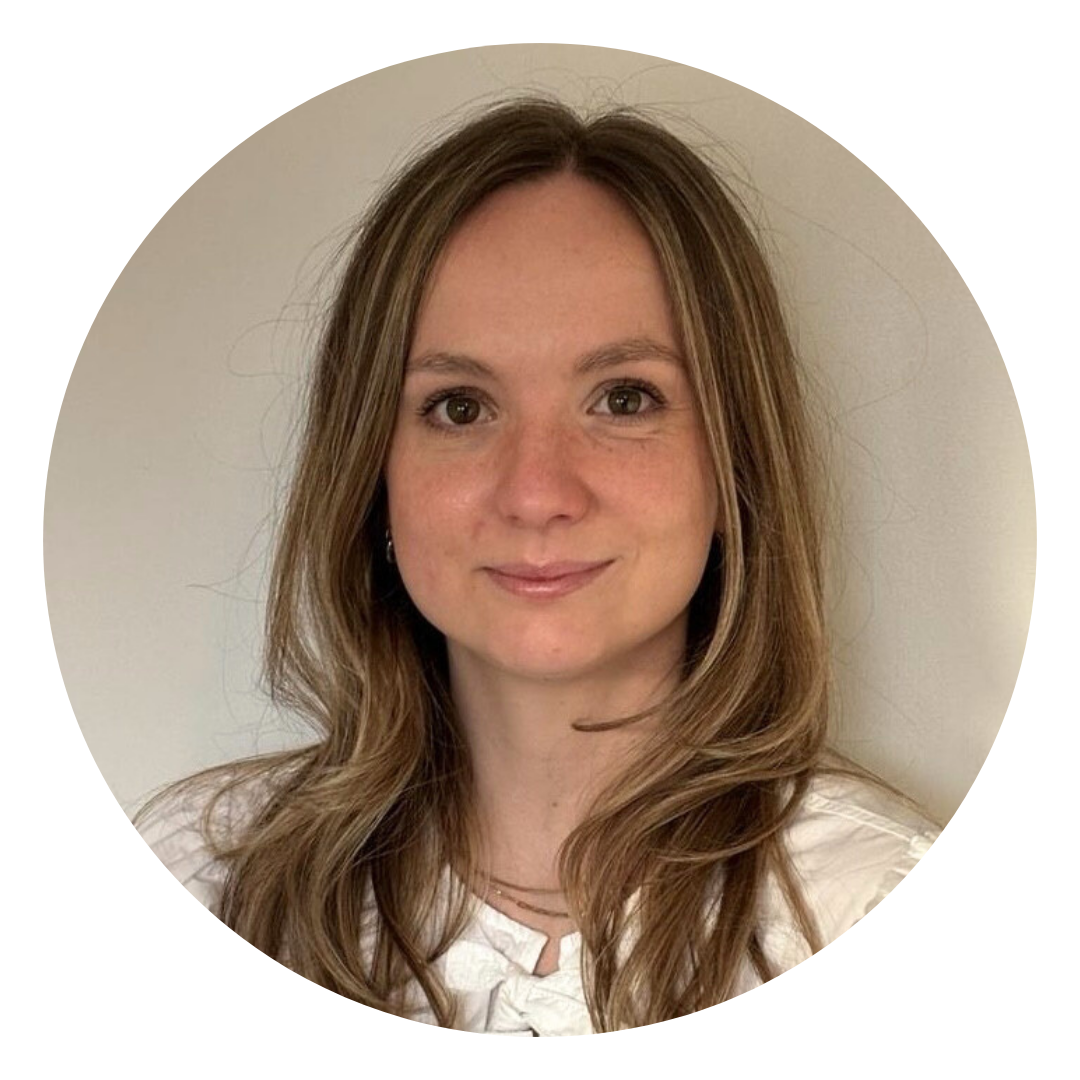
My background is as clinical pharmacist with specialist expertise in gastroenterology and dermatology. As a frontline healthcare professional, delivering high-quality patient care has always been my main priority. I am deeply committed to developing and improving services to ensure patients have a positive experience and achieve the best possible outcomes from their medicines.
The Specialist Pharmacy Service is my host organisation for the Fellowship and over the next year, my goal is to work closely with senior leaders and national healthcare organisations to enhance my leadership and management skills. This experience will enable me to continue driving meaningful improvements in pharmacy practice and advocating for positive change in patient care.
- Maria Mullerat, Current Chief Dental Officer's Clinical Fellow 24/25
-
Working with the NHS Business Services Authority (NHSBSA) has broadened my understanding of healthcare projects and their collaborative impact on patient care. Analysing national, regional, and local NHS Primary Dental Services data has enhanced my strategic insight, while engagement with clinical leaders has deepened my appreciation for monitoring clinical care. This fellowship has also enabled inter-organisational collaboration, highlighting opportunities to improve NHS Dentistry. The experience is strengthening my leadership and management skills, which I will apply in my future career to drive positive change in NHS Dentistry — an area of growing importance within the evolving healthcare landscape. Image
- Raykal Sim, Current National Medical Director's Clinical Fellow 24/25
-
Image

Raykal, a future GP, is passionate about driving positive change within the NHS. With a strong track record of impactful grassroots initiatives, especially supporting International Medical Graduates, she aims to support shaping the NHS workforce.
Her qualifications in coaching and PRINCE2 project management highlight her strategic leadership and commitment to developing others. Raykal's interest in systems thinking and quality improvement will be invaluable as she seeks to enhance healthcare delivery and population health.
Through the FMLM fellowship with Deloitte's Healthcare Strategy team, she will further develop her skills in influencing and leading meaningful change within the health and care system.
- Will Appleyard, Current National Medical Director's Clinical Fellow 24/25
-
I am a clinical radiology registrar working with the Care Quality Commission (CQC) in secondary and specialist care as well as Ionising Radiation (Medical Exposure) Regulations (IR(ME)R). I am in training at Bart’s and the Royal London Hospitals including secondments to Great Ormond Street Hospital and Homerton University Hospital, following earlier clinical work in Norfolk.
Image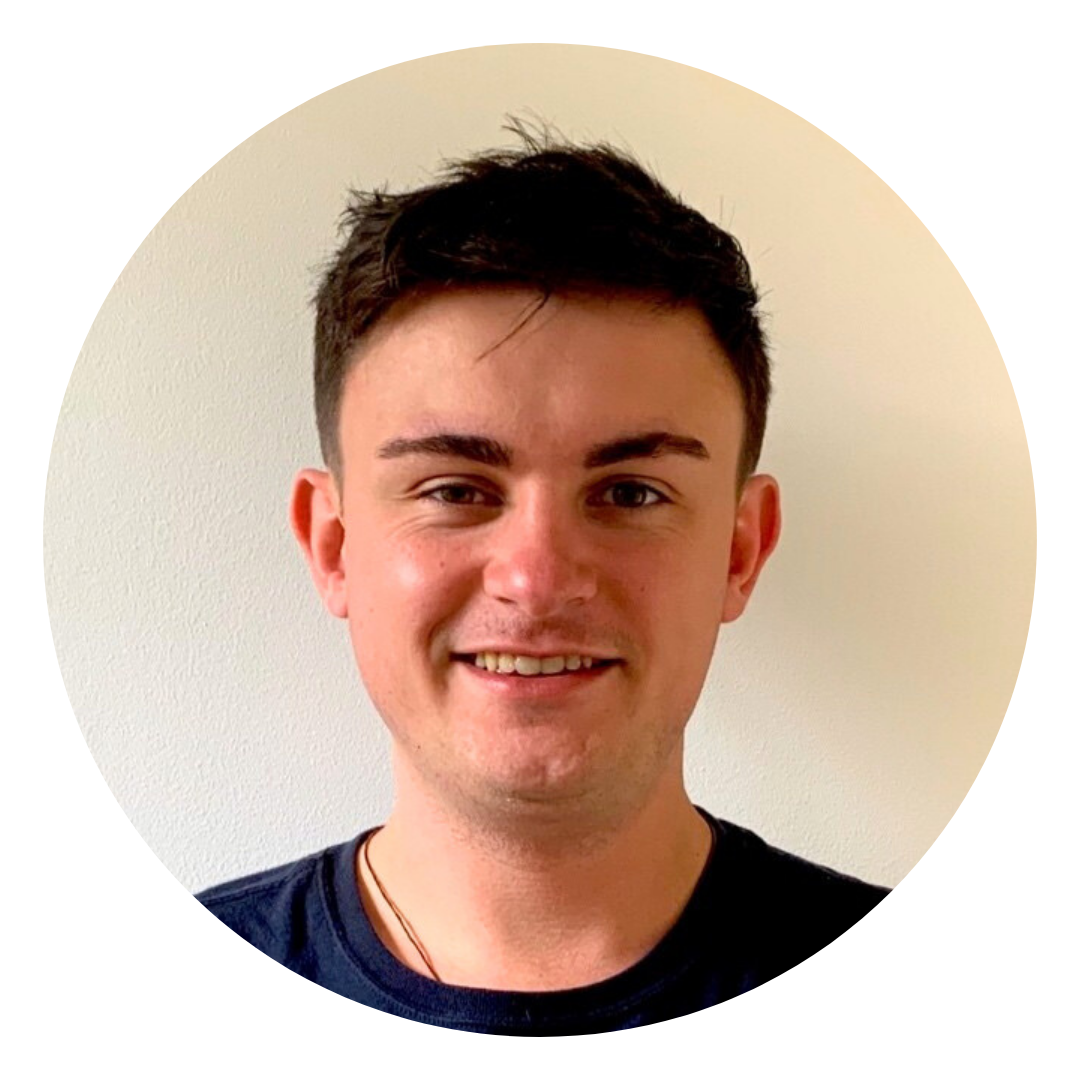
- Jessica Yap, Current Chief Pharmaceutical Officer’s Clinical Fellow 24/25
-
Image

I am Jessica Zhuo Li Yap, a Chief Pharmaceutical Officer’s Clinical Fellow, co-hosted by NHS England and South East London ICB, bridging national strategy with local implementation. My background spans community pharmacy, general practice, and digital health. This role has given me a platform to shape policy, develop system leadership, and connect frontline challenges with strategic solutions. I am passionate about advancing digital health transformation, promoting equitable healthcare, and driving patient-centered care through innovative solutions.
- Bhavna Halai, Current Chief Pharmaceutical Officer’s Clinical Fellow 24/25
-
My leadership journey blends clinical pharmacy expertise with a passion for innovation in public health and inclusive leadership, aiming to improve patient outcomes nationwide. As Lead HIV and Sexual Health Pharmacist, I’ve driven projects like optimising injectable antiretroviral therapies and enhancing care for ageing people living with HIV. My influence extends nationally through roles such as committee member for BHIVA’s EEDI group, HIVPA bulletin lead, and PIL committee member. Previously, as Medication Safety Officer, I developed strategies to safeguard patients, using incident data and collaborative leadership to implement trust-wide solutions. This fellowship offers a unique chance to further my leadership skills and drive change. Image
FAQs
- I have senior leadership experience. Will that enhance my application?
-
The scheme is aimed at developing future leaders and is not suitable for those that hold or have held established or senior leadership roles.
- I am a healthcare professional but not listed in one of the eligible categories on the application form. Can I apply?
-
This scheme is open to those listed only as it is developed for the specific leadership development needs of these clinical groups.
- Can international or EEA applicants apply?
-
The scheme is open to all applicants that satisfy the eligibility and selection criteria and are eligible to work in the UK or participate in this scheme according to visa requirements.
If you are uncertain whether your visa entitles you to work in the UK and participate in this scheme, please seek further information from the UK Visas and Immigration website at https://www.gov.uk/government/organisations/uk-visas-and-immigration.
Please note that participating organisations, including FMLM, NHS England or host organisations are unable to provide sponsorship to international candidates
- Can I defer entry?
-
We are unable to accept applications for deferred entry to the scheme. All posts will commence from September 2025.
- I have completed an FMLM Clinical Scheme previously. Can I reapply?
-
Clinicians that have been through the scheme previously are not eligible to reapply.
- I am unable to attend the interview date(s). Is there an alternative?
-
Interviews will be held virtually for maximum accessibility; therefore, alternative dates are not available.
- Can I speak to the host organisations or current clinical fellows in person or over the telephone?
-
Given the significant number of applicants for this scheme, we are unable to provide contact details for host organisations or current clinical fellows. However, if shortlisted, you will have the opportunity to meet them during the scheduled host evening to gain information about the fellowship experience and to ask questions. If contacted directly via other channels, current clinical fellows will not discuss any specifics or provide additional details around the selection process.
- I applied before but didn’t get through the interview, is it worth me applying again?
-
Previous applicants who were unsuccessful are welcome to apply again and the previous application will not be taken into account.
- Will I get feedback on my application if it’s not successful?
-
Only candidates who are unsuccessful at the interview stage will receive feedback.
- Can I transfer to a different scheme or host at a later date?
-
This is not possible. Candidates are advised to only confirm acceptance of roles and offers if they can fully commit to the terms.
Hosting a Clinical Fellow
Does your organisation have the capacity to host a Clinical Fellow and desire the opportunity to engage with some of the most talented clinicians in the UK, many of whom are likely to be the senior leaders of the future?
Found out more information on becoming a host organisation
